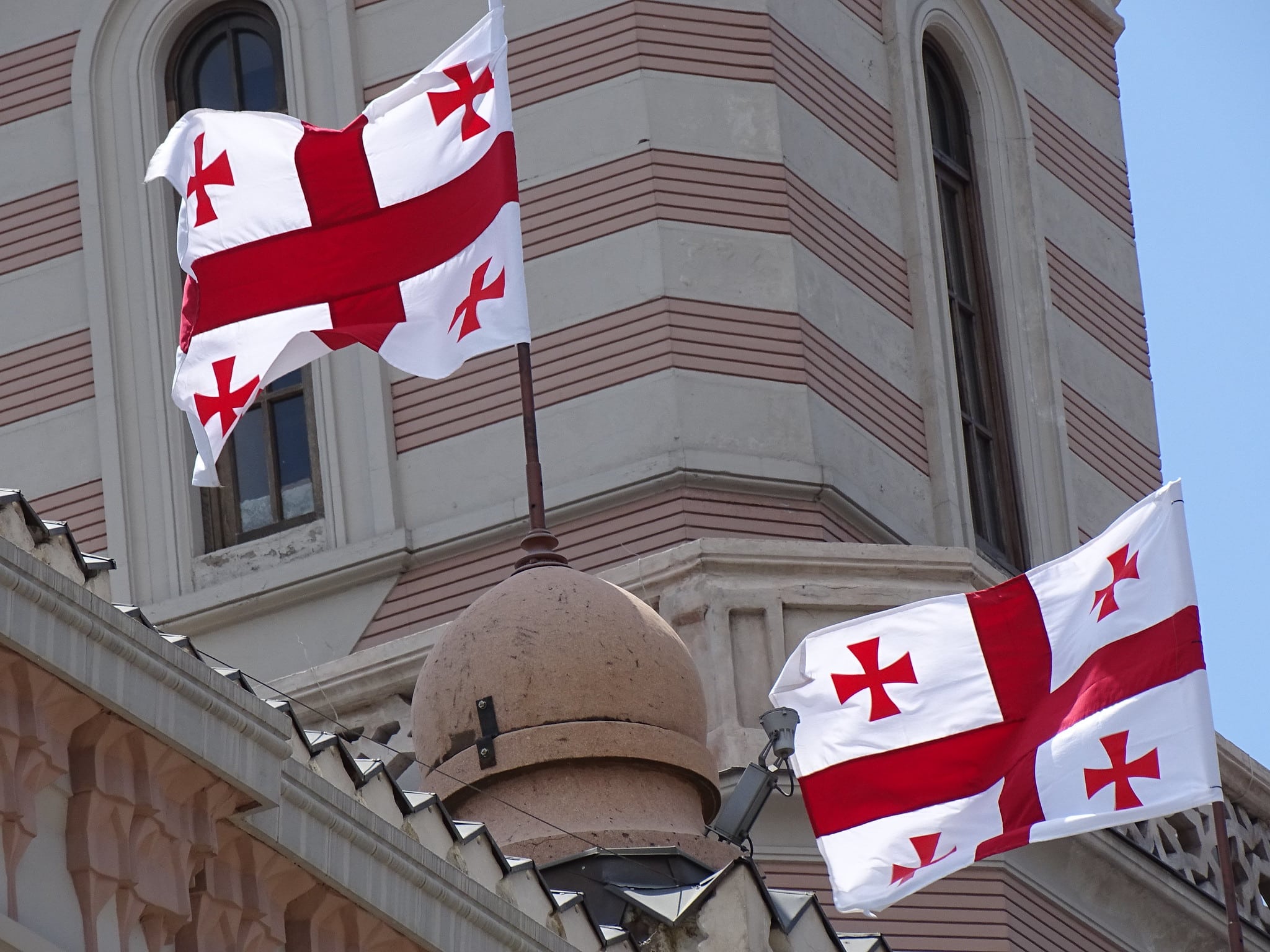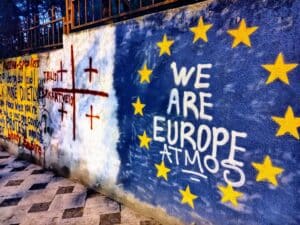Photo: Georgian flags in old town Tbilisi – Flickr
In end-October, a European Forum of Democracy and Solidarity (EFDS) delegation of seven people visited Georgia. The group consisted of members of parliaments from different states in Europe and political foundation representatives. The focus was mainly on Georgia’s foreign policy, fulfilment of EU commission recommendations, conversations with and assessing the relations between civil society actors and political parties. Moreover, our delegation assessed the key challenges with regard to the 2024 parliamentary elections taking place in October.
The importance of our visit
The EFDS needs to engage in knowledge-building on challenges Georgia is facing regarding their democratic development. Whereas the country initially made important steps towards becoming a full democracy, progress has slowed or even reversed in some areas. In the past decade, it has become increasingly difficult for opposition, activists and NGOs in the country to operate in the civic space. State encroachment on governmental institutions, the media and security forces as well as election malpractices have caused distrust in the government and led to large-scale protests, notably in March 2023. Normalisation of relations with Russia have caused further concern about the commitment to both democratic values and transatlantic allegiances. At the time of the EFDS visit Georgia was still bidding to gain EU candidate status which they achieved in December 2023. If fulfilled, the strict conditions for becoming a member-state could steer Georgia away from Russia, towards democratisation.
The invasion of Ukraine by Russia has solidified the belief amongst parts of the Georgian public that appeasement is the best strategy to prevent a war with Russia. The conflict has further securitised the Georgian political discourse that was already heavily focused on the relationship with and potential threat of Russia. Disagreements about security issues are an especially important source of contention between GD and UNM. They have led to further polarisation and had a negative effect on Georgia’s democratisation trajectory.
Another important part of the mission was to establish relations with organisations in Georgia. Various social democratic and progressive foundations are present within the country and could benefit from network-building. The EFDS visited several of such organisations to assess whether collaborations in the future are possible. The main goal is to foster co-operation between EFDS organisations and set up projects in Georgia that help progressive actors to tackle the domestic socio-political challenges.
Findings and recommendations
The political trajectory of the governing Georgian Dream (GD) party is important to understand the current political situation in Georgia. Over the past years the party has moved away from its socially oriented policies towards a more repressive, power-seeking strategy. The ‘foreign agents law’ is an infamous example but there are many other examples where political institutions are hollowed out by the governing party.
The legitimacy of Georgian politics is rather low due to the role of opaque funding streams, vested business interest and personal feuds. The entry barrier for new parties seeking to challenge bipolar ‘status quo’ political set-up – with GD and UNM as main parties – is quite high. However, if a third force in politics were to emerge, it could lead to more political pluralism and cross-partisan legislature. Additionally, there is currently a lack of communication between CSOs and political parties. If improved, it could help new political parties gain institutional knowledge and increase mobilisation and backing.
Under GD’s rule, Georgia’s civil society has also faced increasing pressures. Although the civic space is prosperous, it has faced sustained attacks from GD which are especially harmful to vulnerable communities such as the LGBTQI+ people. The EU should monitor for violations of minorities and tie them to consequences in regard of Georgia’s EU accession procedure.
The media landscape in Georgia is largely controlled by the governing GD party and used to promote their ideas. There are worrying signs that it does not function the way it should in a full-fledged democracy. Investing in a pluralistic, non-partisan media landscape and independent journalism is considered key to combatting the political polarisation and establishing democratic foundations.
In October 2024, parliamentary elections take place in Georgia. It will be an important moment for the country in several respects. Close monitoring of election conduct will reveal the direction the Georgian government takes in regard to the strict requirements for EU accession. GD will face off against its main rival, the United National Movement (UNM). The two parties are bitter rivals and base their identity on opposition against the other. The elections will be an important moment to gauge the political polarisation in the country, and will be followed closely by the EFDS as well.



